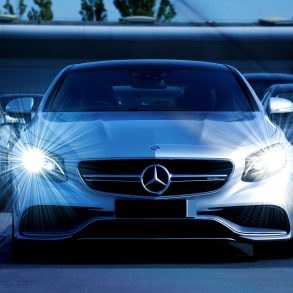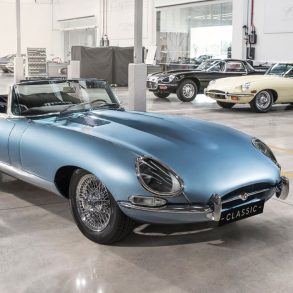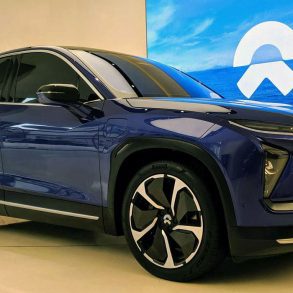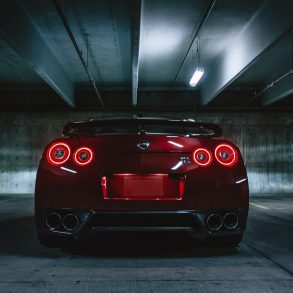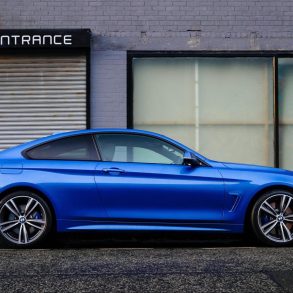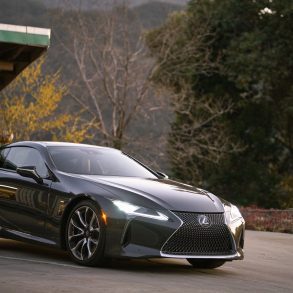 , with 1,92 million units it was only 100.000 sales behind China, the world’s largest single car market. Helped by strong UK volume, March is traditionally the biggest selling month of the year, with about 11,5% of full year sales, so records are usually set this month. If the market as a whole sets a new volume record, a number of individual brands are naturally bound to do the same. And indeed, no less than 26 brands break their monthly volume record, which is half of all the brands currently on sale. I guess that may be a record by itself, although I didn’t check it. Especially luxury and exotic brands had a blockbuster month, with 17 record breakers out of 24 brands, compared to 9 new sales records out of 28 mainstream brands.
, with 1,92 million units it was only 100.000 sales behind China, the world’s largest single car market. Helped by strong UK volume, March is traditionally the biggest selling month of the year, with about 11,5% of full year sales, so records are usually set this month. If the market as a whole sets a new volume record, a number of individual brands are naturally bound to do the same. And indeed, no less than 26 brands break their monthly volume record, which is half of all the brands currently on sale. I guess that may be a record by itself, although I didn’t check it. Especially luxury and exotic brands had a blockbuster month, with 17 record breakers out of 24 brands, compared to 9 new sales records out of 28 mainstream brands.
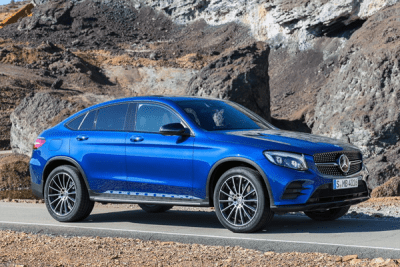 Mercedes-Benz and BMW both break the magic 100.000 monthly sales for the first time ever, and Audi misses that milestone by just 1.000 units. Both Jaguar and Land Rover lodge their highest volume months ever in Europe, at 14.271 and 32.663 sales respectively. But it’s not only the Germans that scored well last month, as Volvo set a new monthly record at 36.891 sales, Mini at 27.765 and Jeep also has record European volume at 11.756 sales. At 9.259 sales, Porsche also celebrates a new monthly high. With 6.086 sales, Lexus sold 40 more cars than it did last September, its previous record. Tesla sold 3.885 units of its Model S and Model X for a new European record, and Infiniti not only enjoys its highest volume in Europe ever at 2.191, it sells almost as many cars in a single month than it did in all of 2013. Similarly, Maserati sold more cars in Europe in March than it did in all of 2012: 1.397 units. Fellow brand Ferrari‘s 442 sales are also its highest ever. Bentley scores a new monthly record at 604 sales, and Aston Martin scores its highest volume since at least 2009 with 565 sales, one third of the brand’s full year 2016 sales. And after hitting the magic 100 sales for the first time last September, Rolls Royce sets that record sharper again at 122 sales. Indeed, March was a great month to be a luxury or exotic brand in Europe.
Mercedes-Benz and BMW both break the magic 100.000 monthly sales for the first time ever, and Audi misses that milestone by just 1.000 units. Both Jaguar and Land Rover lodge their highest volume months ever in Europe, at 14.271 and 32.663 sales respectively. But it’s not only the Germans that scored well last month, as Volvo set a new monthly record at 36.891 sales, Mini at 27.765 and Jeep also has record European volume at 11.756 sales. At 9.259 sales, Porsche also celebrates a new monthly high. With 6.086 sales, Lexus sold 40 more cars than it did last September, its previous record. Tesla sold 3.885 units of its Model S and Model X for a new European record, and Infiniti not only enjoys its highest volume in Europe ever at 2.191, it sells almost as many cars in a single month than it did in all of 2013. Similarly, Maserati sold more cars in Europe in March than it did in all of 2012: 1.397 units. Fellow brand Ferrari‘s 442 sales are also its highest ever. Bentley scores a new monthly record at 604 sales, and Aston Martin scores its highest volume since at least 2009 with 565 sales, one third of the brand’s full year 2016 sales. And after hitting the magic 100 sales for the first time last September, Rolls Royce sets that record sharper again at 122 sales. Indeed, March was a great month to be a luxury or exotic brand in Europe.
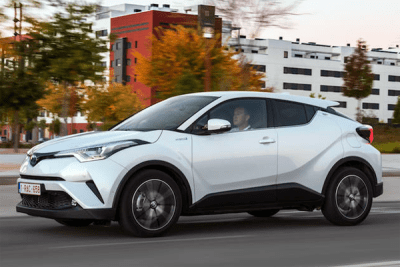 But not only luxury brands were record breakers, there was also plenty of champagne uncorked at mainstream brands: market leader Volkswagen sold more cars in a single month than any brand has ever done in Europe: 186.246. Nissan also sets a new record at 90.770 sales, Toyota improved to 83.123 sales and Skoda‘s new monthly volume record is set to 71.960. Sales of the South-Korean brands collapsed in China this month due to anti-Korean sentiment, but in Europe they keep firing on all cylinders: Hyundai sets a new record at 58.473 and Kia at 53.111, topping 50.000 European sales for the first time ever. Seat has its best month ever at 44.119 sales, Dacia does too at 42.832 and Suzuki has never sold as many cars in Europe as this month at 28.097.
But not only luxury brands were record breakers, there was also plenty of champagne uncorked at mainstream brands: market leader Volkswagen sold more cars in a single month than any brand has ever done in Europe: 186.246. Nissan also sets a new record at 90.770 sales, Toyota improved to 83.123 sales and Skoda‘s new monthly volume record is set to 71.960. Sales of the South-Korean brands collapsed in China this month due to anti-Korean sentiment, but in Europe they keep firing on all cylinders: Hyundai sets a new record at 58.473 and Kia at 53.111, topping 50.000 European sales for the first time ever. Seat has its best month ever at 44.119 sales, Dacia does too at 42.832 and Suzuki has never sold as many cars in Europe as this month at 28.097.
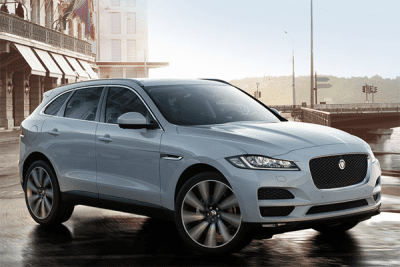 What is fueling these records? There’s not explanation that is valid for all brands alike, except for a recovering economy and renewed consumer confidence. However, for a lot of these brands there is a similarity: the successful introduction of new crossovers. The Jaguar F-Pace, Maserati Levante and Bentley Bentayga have all quickly become their brand’s best selling model. The Model X helps Tesla continue its growth, while the Seat Ateca more than makes up for losses at the rest of the line-up. The Audi Q2 does the same and has become the brand’s best selling crossover/SUV within a few months. The Toyota C-HR is responsible for 92% of the brand’s growth, and even though its successor has already been presented, the 9-year old Volvo XC60 is responsible for 90,5% of the brand’s growth this month. Alfa Romeo has just launched its new SUV Stelvio and is looking to emulate these successes, and plenty of other brands have got new crossovers and SUVs coming out in the next few months. After years of losses, there is finally some money to be made in Europe again for those brands that have the right product.
What is fueling these records? There’s not explanation that is valid for all brands alike, except for a recovering economy and renewed consumer confidence. However, for a lot of these brands there is a similarity: the successful introduction of new crossovers. The Jaguar F-Pace, Maserati Levante and Bentley Bentayga have all quickly become their brand’s best selling model. The Model X helps Tesla continue its growth, while the Seat Ateca more than makes up for losses at the rest of the line-up. The Audi Q2 does the same and has become the brand’s best selling crossover/SUV within a few months. The Toyota C-HR is responsible for 92% of the brand’s growth, and even though its successor has already been presented, the 9-year old Volvo XC60 is responsible for 90,5% of the brand’s growth this month. Alfa Romeo has just launched its new SUV Stelvio and is looking to emulate these successes, and plenty of other brands have got new crossovers and SUVs coming out in the next few months. After years of losses, there is finally some money to be made in Europe again for those brands that have the right product.
European car sales statistics are from the following countries: Austria, Belgium, Bulgaria, Croatia, Cyprus, Czech Republic, Denmark, Estonia, Finland, France, Germany, Greece, Hungary, Iceland, Ireland, Italy, Latvia, Lithuania, Luxembourg, Netherlands, Norway, Poland, Portugal, Romania, Slovakia, Slovenia, Spain, Sweden, Switzerland, United Kingdom. They exclude vehicles registered as commercial vehicles. Source: ANDC, JATO Dynamics


